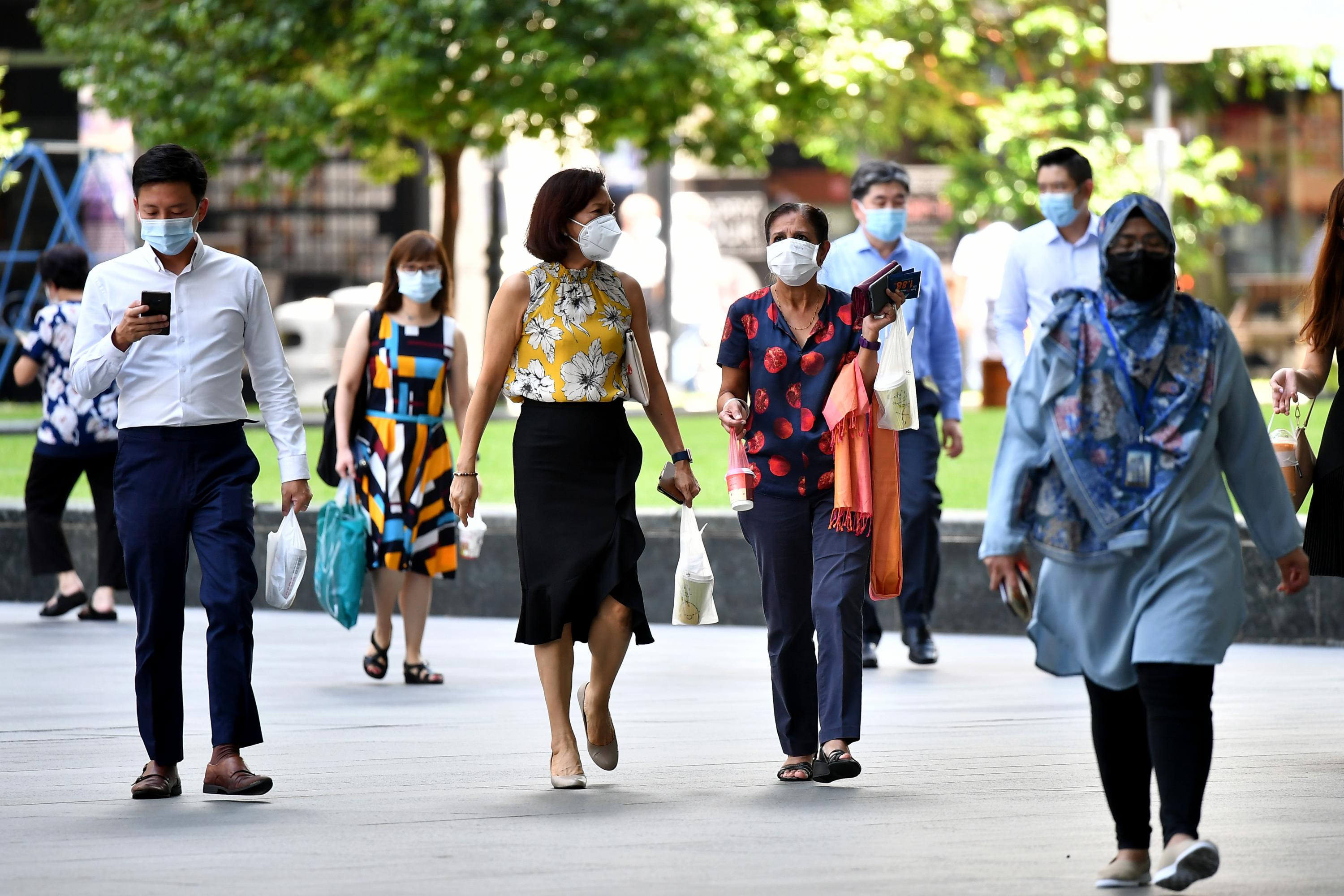Covid-19 pandemic, border restrictions may hinder Singapore's economic recovery: Experts
Sign up now: Get ST's newsletters delivered to your inbox

As borders have yet to reopen fully, businesses looking to expand will still have to hire from the local labour pool.
PHOTO: ST FILE
Follow topic:
SINGAPORE - While the economy and employment opportunities are expected to recover further in 2022, risk factors like the Covid-19 pandemic and border restrictions could trip up the process, said economic and human resource experts on Friday (Jan 28).
The labour market stays hopeful, with workers being more open to upskilling, and government grants and support, Singapore Human Resources Institute (SHRI) president Low Peck Kem told The Straits Times.
The forecast for a return to gross domestic product growth of 3 to 5 per cent this year also suggests some confidence that border restrictions will ease and foreign manpower inflows will pick up significantly, said Ms Selena Ling, chief economist and head of treasury research and strategy at OCBC Bank.
Speaking at the labour market advance release media briefing on Friday for the fourth quarter of 2021, Senior Minister of State for Manpower Koh Poh Koon said that retrenchments are expected to remain low in the fourth quarter of 2021.
"We also expect to see a significant decline for the full year in 2021 compared with the year 2020," Dr Koh added at the briefing, which was held at Lucence Diagnostics in Henderson Road.
Ms Low said risks to the economic recovery are new potent variants of the coronavirus, closure of borders, restrictions in movement of workers from across borders, and travel restrictions internationally and movement controls domestically.
"Such risks prevent the free labour market at play and will adversely impact the economic recovery process as well as labour market recovery and growth," she added.
Another development that may increase the cost of business and hence affect a company's viability is inflation, said National University of Singapore business professor Lawrence Loh.
"Whether this (inflation) will taper off in the latter part of the year will affect the labour market recovery," added Prof Loh.
As borders have yet to reopen fully, businesses looking to expand will still have to hire from the local labour pool, said CIMB economist Song Seng Wun.
"From a businesses standpoint, they have to compete for local labour while they struggle to bring in foreign labour, which can be a source of pressure," said Mr Song.
However, with the rise of hybrid work and virtual working, companies will still be able to hire beyond Singapore's shores, said Ms Low.
"Companies may start to look for talent based on the competencies they bring, and measure outcomes in order to compensate accordingly," she added.
"Hiring could be made more flexible and some organisations today hire based on time zones in order to get the talent they need."
Meanwhile, outward-oriented sectors such as information and communications, and financial services will expect to see no slowdown in the hiring of technology talent, said Mr Daljit Sall, senior director of information technology at Randstad Singapore.
"As the economy picks up, we are expecting companies to increase their hiring appetite for tech talent to catch up on projects as well as to scale up their business activities," said Mr Sall.
Roles particularly in demand include software developers, cyber-security experts, product managers as well as user experience (UE) and user interface (UI) designers.
"As companies continue on their digital transformation journey, the demand for skilled tech talent will only stay on an upward trend," added Mr Sall.
There will also be additional demand for service staff amid an expected boom in the hospitality and tourism sectors, said Prof Loh, particularly with the renewal of Formula One races here this year.


